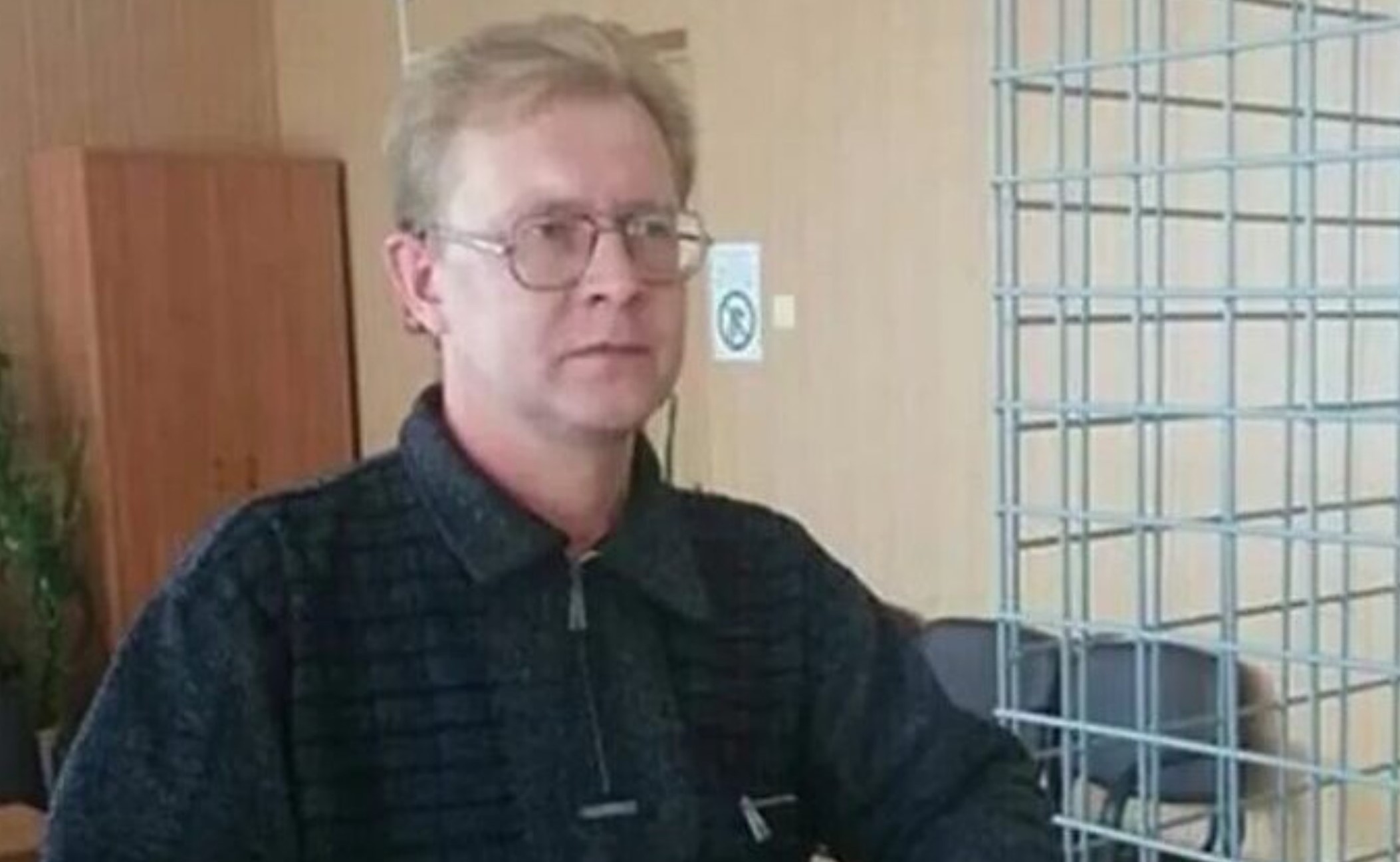Russia sentences poet Aleksandr Byvshev to 7 years for writing of its war crimes in Ukraine

A Russian court has sentenced Oryol poet Aleksandr Byvshev to seven years’ imprisonment for expressing, in poetic form, his opposition to Russia’s war of aggression against Ukraine and for a social media post about Russia’s mass killing of Ukrainian civilians. Now 51, Byvshev has faced persecution since 2014 because of this refusal to be silent about Russia’s aggression, and, judging by the other criminal charges added since his arrest, it is likely that he will face further reprisals for his courageous stand.
Byvshev was arrested in February 2023 over a four-line poem about Russia’s war against Ukraine which he had posted on his Facebook page. The verse reads as follows: “Missiles are being fired at Ukraine, the Kremlin has spurned conscience and morality. Officer’s honour, where are you? Where is the Russian Stauffenberg?”
The FSB decided to accuse Byvshev of having made ‘‘public calls to carry out terrorist activities’ in the media or on the Internet’ under Article 205.2 § 2 of Russia’s criminal code. The excuse for this was Byvshev’s reference to General Claus von Stauffenberg, who played a major role in the unsuccessful attempt in 1944 to assassinate Adolf Hitler. The prosecution claimed, and a Russian court has now agreed, that Byvshev was calling for the assassination of Russian leader Vladimir Putin.
This was nonsense, the Memorial Support for Political Prisoners Project stated clearly, when it declared Byvshev a political prisoner on 14 April 2023. Memorial pointed out that there was no call to action in Byvshev’s poem and that the poet had merely expressed his feelings in artistic form. The criminal charges, Memorial wrote, “violates his right to freedom of expression and is aimed at stifling and intimidating opponents of Russia’s war against Ukraine. <> Aleksander Byvshev is being persecuted in order to punish him for his consistent voicing of opposition and anti-war views in poetic form, and to stop him expressing these views. It is clear that Byvshev’s consistent position, his point of view, expressed over many years in spite of mounting pressure aroused particular irritation among the security service.”
By October 2023, the prosecution had added a new criminal charge, using the worst of four administrative and criminal charges rushed into legislation within ten days of Russia’s full-scale invasion of Ukraine. Article 207.3 punishes for something claimed to be “the public circulation of knowingly false information about the actions and use of the Russian Federation armed forces’, mercenaries, and others involved in Russia’s war against Ukraine. It has been used repeatedly to imprison those Russians who condemn and write about Russia’s war crimes in Mariupol, Bucha and other Ukrainian cities. Russian prosecutors and ‘judges’ consistently ignore the fact that the information circulated was true and backed by considerable video footage, witness testimony, etc. and hide behind ‘official denials from Russia’s ministry of defence.
This was the case here, as Byvshev was charged under Article 207.3 over a social media post in which the poet wrote about Russia’s killing of civilians, including children. The post contained a photo of Bucha in Kyiv oblast after Russia’s devastation, and mentioned that this was where Byvshev’s aunt had been born and studied. The prosecution claimed that Byvshev’s post had been “aimed at undermining the authority and discrediting the authorities and army”.
The ‘trial’ on both charges took place before ‘judge’ Anton Igorevich Kakadeyev from the Second western military court. Judging by the information on the court’s website, there was only one court hearing before the sentence was passed on 19 March. The prosecutor had demanded an 8-year sentence, Kakadeyev handed down a 7-year term of imprisonment in a medium-security prison colony.
In January 2024, Byvshev wrote in a letter that he was facing a further three criminal prosecutions, with this bringing the overall number of such criminal cases to 14. He wrote that he was to be ‘tried’ by a military court behind closed doors. Two of the charges were under the article on ‘fakes’ (or ‘knowingly false information’) about Russia’s armed forces, etc. A third charge once again accused the poet of ‘public calls to or justification of terrorism’. All of these are clearly over poems or posts.
Russia’s persecution of Byvshev (b. 1972) began in 2014 and included at least six criminal prosecutions over poems in which he expressed his support for Ukraine and opposition to Russia’s invasion of Crimea. As well as the criminal proceedings, he lost his teaching job and was placed on Russia’s notorious ‘List of Terrorists and Extremists’. This made it hugely difficult for him to look after his parents who were in their eighties and in very poor health, with the need to care for them meaning he could not think of leaving the country.
In 2015, for example, he was convicted of ‘inciting enmity’, under Article 282 § 1 of Russia’s criminal code, and sentenced to 300 hours of community service, as well as being banned from teaching in schools for two years and having his computer confiscated. All of this was over a poem ‘To Ukrainian Patriots’ in which he expressed his opposition to Russia’s annexation of Crimea and suggested that Ukrainians should ensure that not one inch of Crimea was handed “to Putin’s chekists”.
In 2017, he was convicted on the same charge over a poem entitled ‘On Ukraine’s Independence’. He received the same sentence, with this, however, after the prosecutor had demanded a two and a half-year term of imprisonment.
It was reported back in 2015 that the Russian Wikipedia had deleted its entry on Aleksander Byvshev despite his being a published poet. There was, and is, an entry in English, however Wikipedia has, unfortunately, allowed Russia to censor the Russian Wikipedia which is now pretending that Byvshev does not exist.





